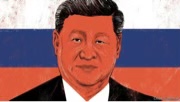|
euphronius posted:endemic isn’t a magic word lol
|
|
|
|

|
| # ? Jun 7, 2024 15:48 |
|
Crow Buddy posted:unless China knows something we don’t. looking at infection and death rates, i would guess they know a bunch of things we don't (e.g., how to have a functioning public health apparatus)
|
|
|
|
China should just have given that tsingtao beer instead of a hazmat martini mixer.
|
|
|
|
the milk machine posted:looking at infection and death rates, i would guess they know a bunch of things we don't (e.g., how to have a functioning public health apparatus) A functioning government/society may seem like a miracle if you are American, but it isn’t really that impressive.
|
|
|
|
Crow Buddy posted:A functioning government/society may seem like a miracle if you are American, but it isn’t really that impressive. it is, actually we just like to pretend it isn't
|
|
|
|
Whatever. I just have a different perspective and don’t buy into the belief that China’s approach is to be emulated. And let’s wait a bit before we declare their approach a success.
|
|
|
|
yeah that’s a pretty good impression of a NYT op ed
|
|
|
|
Trolling Thunder posted:Whatever. I just have a different perspective and don’t buy into the belief that China’s approach is to be emulated. And let’s wait a bit before we declare their approach a success. You're in the thread made to celebrate the fact that many different perspectives are stupid and deserve scorn
|
|
|
|
cat botherer posted:It means that we can stop caring, just like we don't care about other endemic problems like cancer, lead poisoning, childhood poverty, etc. These things are all common, therefore it makes no sense to combat them. It really is amazing to me that we can fail to solve a problem ourselves, tautologically declare the problem unsolvable to explain our failure, ridicule those who still try to solve it, and when they succeed we just say "well it's only temporary, because as we know the problem is unsolvable." Like, even if the guy in this thread IS trolling, that's something that a lot of people in our beloved media complex still believe, totally unironically. Between this and climate change, I'm beginning to think that maybe humans just aren't very smart.
|
|
|
|
Random rear end in a top hat posted:and when they succeed we just say "well it's only temporary, because as we know the problem is unsolvable." and also say the should stop solving it because it might be resulting in negative impacts to us/the economy
|
|
|
|
someone remind me what amazingly prepared country this virus emerged from (USER WAS PUT ON PROBATION FOR THIS POST)
|
|
|
|
Trolling Thunder posted:Whatever. I just have a different perspective and don’t buy into the belief that China’s approach is to be emulated. And let’s wait a bit before we declare their approach a success. youre a deadshit
|
|
|
|
Trolling Thunder posted:someone remind me what amazingly prepared country this virus emerged from google fort detrick
|
|
|
|
Trolling Thunder posted:someone remind me what amazingly prepared country this virus emerged from 
|
|
|
|
Trolling Thunder posted:someone remind me what amazingly prepared country this virus emerged from ... Laos?
|
|
|
|
Trolling Thunder posted:someone remind me what amazingly prepared country this virus emerged from dig up, stupid
|
|
|
|
Trolling Thunder posted:Whatever. I just have a different perspective and don’t buy into the belief that China’s approach is to be emulated. And let’s wait a bit before we declare their approach a success. it's been two years and their deaths per capita and economic growth are pretty much unparalleled?
|
|
|
|
Trolling Thunder posted:Whatever. I just have a different perspective and don’t buy into the belief that China’s approach is to be emulated. And let’s wait a bit before we declare their approach a success. covid 19 it's now 2022
|
|
|
|
The Lysol robots are security theater, but showing off dumb high tech poo poo that serves no purpose is half the reason to host the Olympics
|
|
|
|
If it was the US it would be something something block chain, Lysolbot is the good ending.
|
|
|
|
people do die of something eventually so who can say if fighting disease is good
|
|
|
|
Trolling Thunder posted:Whatever. I just have a different perspective and don’t buy into the belief that China’s approach is to be emulated. And let’s wait a bit before we declare their approach a success. we are entering year 3 lmao
|
|
|
|
2042: Lysol and Sanitizer Overuse Linked to Cancer Spike
|
|
|
|

|
|
|
|
lmao nyt.pitchbot is great
|
|
|
|
I refuse to believe they'd be that honest. Fake screenshot
|
|
|
|
here’s this lovely article https://www.nytimes.com/2021/01/24/opinion/china-covid-vaccine.html posted:
here’s the guy quote:
what a hard worker!
|
|
|
|
the only dystopic thing about the china olympics is that they're holding them at all right now
|
|
|
|
Trolling Thunder posted:someone remind me what amazingly prepared country this virus emerged from https://www.scmp.com/news/china/science/article/3112160/american-study-finds-signs-coronavirus-us-china-outbreak quote:The US has added to research from Italy and France that indicates the coronavirus might have been circulating among people in a number of countries before it was identified in China and erupted into a pandemic. https://www.scmp.com/news/china/science/article/3110088/covid-19-virus-hunters-pick-another-piece-trail-italy quote:Researchers may have found a new link in this puzzle after discovering evidence suggesting the pathogen had infected people across Italy as early as September last year, or months before it was first identified in the Chinese city of Wuhan. https://www.bbc.com/news/world-europe-52526554 quote:A patient treated in a hospital near Paris on 27 December [2019] for suspected pneumonia actually had the coronavirus, his doctor has said.
|
|
|
|
mawarannahr posted:here’s this lovely article im not reading all that poo poo but i do find it funny that its thesis is "public health measures other than vaccines work so well you don't need vaccines" and yet it frames that as a bad thing because the west has just fully given up on anything other than individual vaccination as a solution, to the point that the op-ed writers literally can't understand their own point
|
|
|
|
quote:Things will probably only get more complicated for Chinese health officials like my acquaintance if countries in the West, having pushed much harder than China on mass-vaccination efforts (if rather shoddily at times), reach herd immunity before it does. lol that's quite an "if"
|
|
|
|
things will get much harder for China if the second coming of Christ occurs and He declares Americans his chosen people
|
|
|
|
Trolling Thunder posted:Whatever. I just have a different perspective and don’t buy into the belief that China’s approach is to be emulated. And let’s wait a bit before we declare their approach a success. but at what 'caust?
|
|
|
|
yeah it's going to be a real challenge to ramp up vaccination rates in china, a place that already does much more complicated and difficult regional lockdowns at will because uh well we struggle with vaccination rates
|
|
|
|
China has the 8th highest vaxx rate in the world! It's like 20% higher than ours!
|
|
|
|
Trolling Thunder posted:Whatever. I just have a different perspective and don’t buy into the belief that China’s approach is to be emulated. And let’s wait a bit before we declare their approach a success. China has been fully open and unaffected by the virus for a year and a half now. People make a big deal about snap lockdowns but if nobody was getting sick or dying and bars were staffed and fully open and everything was 100% back to normal, would anybody care if we shut down Houston for a month? China has been completely unaffected by a global pandemic aside from like 5% of the population who have spent 1 month out of the last 18 on lockdown. Even if they decided to let the virus kill 5 million people tomorrow, and there's no reason to believe that will happen, they will still have made out better than anyone in the world.
|
|
|
|
i really wish i could cope as hard as that guy with the fact that china will not actually collapse on itself and instead thrive, while the western world moves on to collectively pretend that the deadly respiratory virus will just go away if we believe hard enough, all but ensuring total social collapse, and i'm stuck on the wrong side of the divide literally blood curdling to watch as everybody agrees to collectively shrug and accept mass death
|
|
|
|
lol at british journalism https://twitter.com/HKesvani/status/1489197850089164800?s=20&t=mSVt7g3MW9Bw-2bO7TYxsg https://twitter.com/HKesvani/status/1489318548375851010?s=20&t=mSVt7g3MW9Bw-2bO7TYxsg
|
|
|
|
lol https://twitter.com/AaronBastani/status/1489590307133997061?s=20&t=mSVt7g3MW9Bw-2bO7TYxsg
|
|
|
|

|
| # ? Jun 7, 2024 15:48 |
|
30.5 Days posted:China has the 8th highest vaxx rate in the world! It's like 20% higher than ours! yeah but if we magically reach herd immunity tomorrow by letting millions die of a preventable disease that keeps mutating into immunity-evasive variants, then they'll be sorry!
|
|
|

































